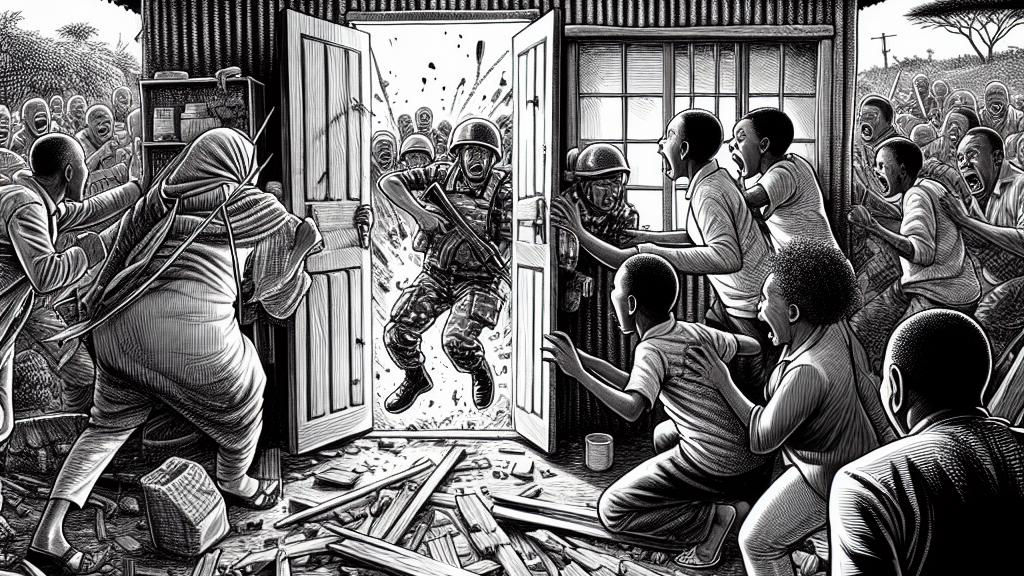Understanding the Long Search for Justice in Kenya's Samantha Pendo Case
Overview
- Samantha Pendo's story is a powerful reminder of the tragic impact of police brutality in Kenya.
- Her parents, Joseph and Lensa, are still embattled in their search for accountability years after the horrific events.
- Systemic failures hinder justice, leaving families like the Pendos in a continuous struggle for redress.

The Tragic Incident
In the vibrant city of Kisumu, Kenya, an innocent night in August 2017 turned into a horrifying nightmare for the Pendo family. Baby Samantha was only six months old when police, amid rising tensions from election-related violence, brutally stormed their home. Envision Joseph Oloo Abanja and Lensa Achieng barricading their door, their hearts racing as they heard the chaos outside—the splintering of wood and angry shouts echoing through the streets. Suddenly, officers smashed the entrance and unleashed tear gas into their modest one-room house. In the chaos, Samantha, gasping for air, tragically sustained severe injuries, including a broken skull. Just three days later, after battling for life in the hospital, she succumbed to her injuries. This wasn’t merely a tragic loss; it was a gut-wrenching reminder of how unchecked police power can devastate innocent lives.
The Broken Promises of Justice
The years that followed Samantha's untimely death were marked by relentless heartache and fruitless legal battles for her parents. The quest for justice, they thought, would be straightforward—but it has transformed into a grueling test of patience. Twelve police officers are poised for murder charges, yet the court dates are like mirages—always receded, always out of reach. Each postponed hearing feels like a new dagger to the heart of the Pendo family, igniting their grief anew. Each time they prepare for the courtroom, their hopes soar, only to crash down as yet another delay is announced. It’s an agonizing cycle of anticipation and despair, reflecting a larger issue within Kenya's justice system. Families caught in similar tragedies often find themselves waiting for closure, trapped in an endless loop where justice remains elusive.
A Call for Accountability
What’s more troubling than the Pendos' suffering is the systemic indifference that permeates Kenya’s law enforcement and judicial systems. Throughout this harrowing saga, legal experts, including Willys Otieno—who advocates tirelessly for the Pendo family—have pointed to an alarming lack of willpower among officials to pursue justice. It raises a significant question: why does it seem that the state is more interested in protecting its officers than seeking justice for innocent victims? The public is increasingly stepping up, voices united to demand transparency and accountability. Imagine a community rallying together, chanting Samantha's name, refusing to let her story be forgotten. This is not merely about one family; it’s a rallying cry for change, advocating for a system where every life, like that of baby Samantha, is valued and protected from such tragedies. It’s essential that this narrative serves as a catalyst for reformation within Kenya, ensuring that no other family suffers the same agony and that justice prevails.

Loading...